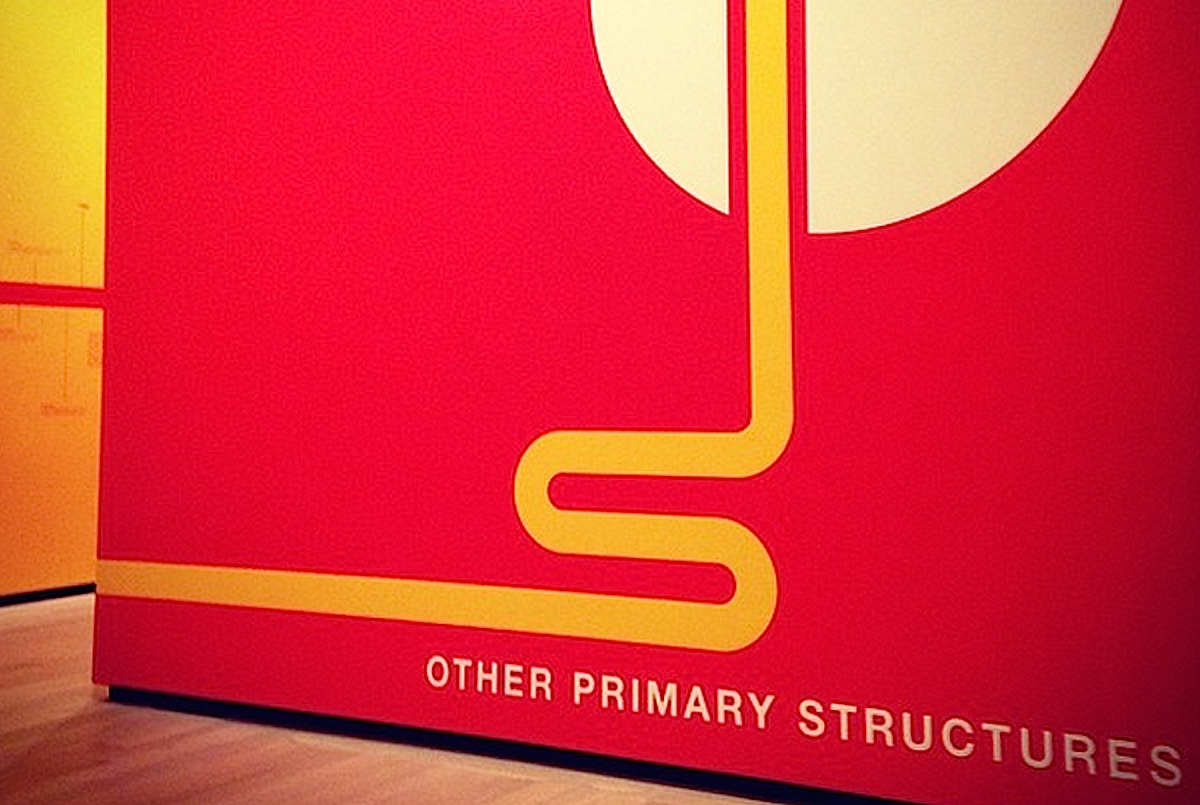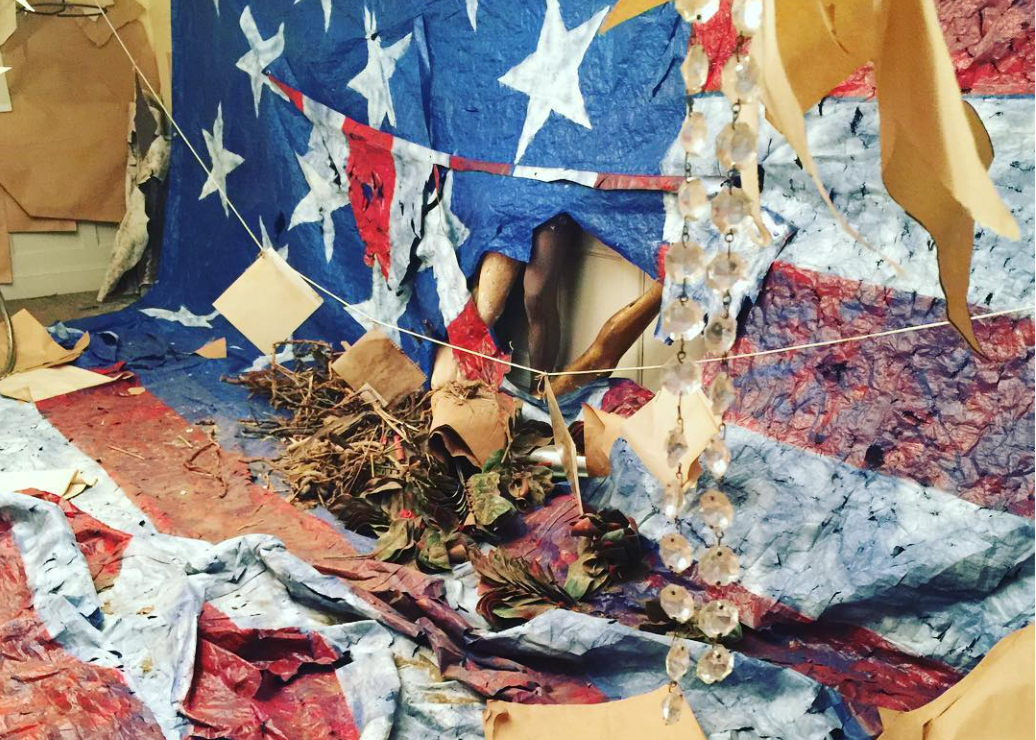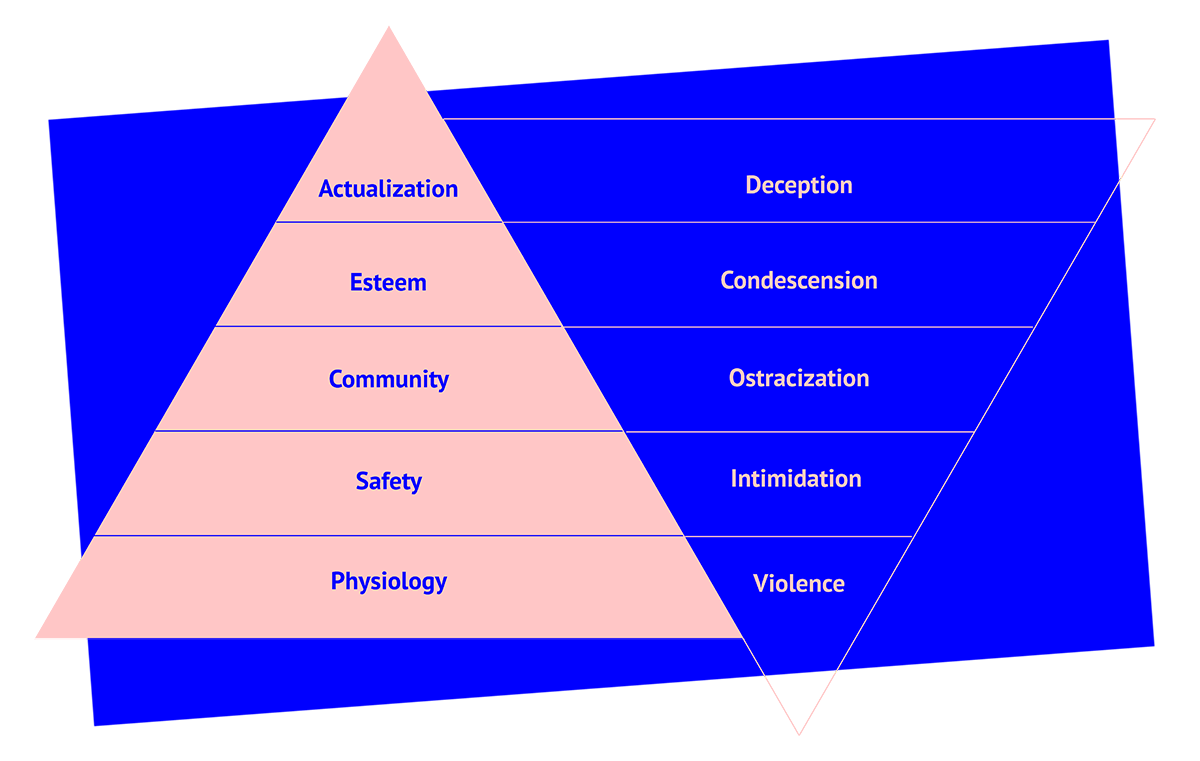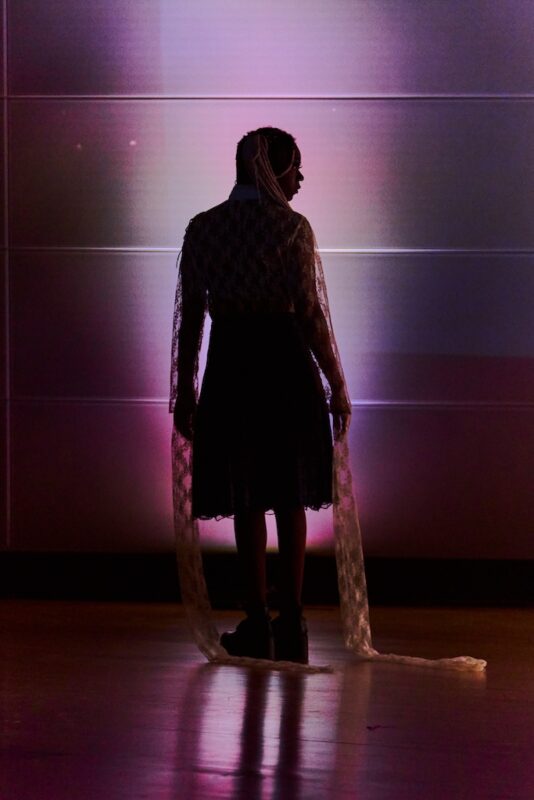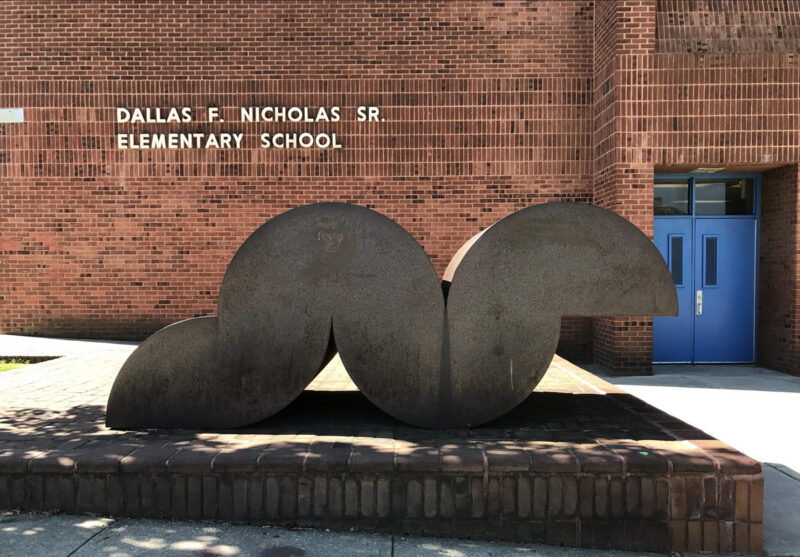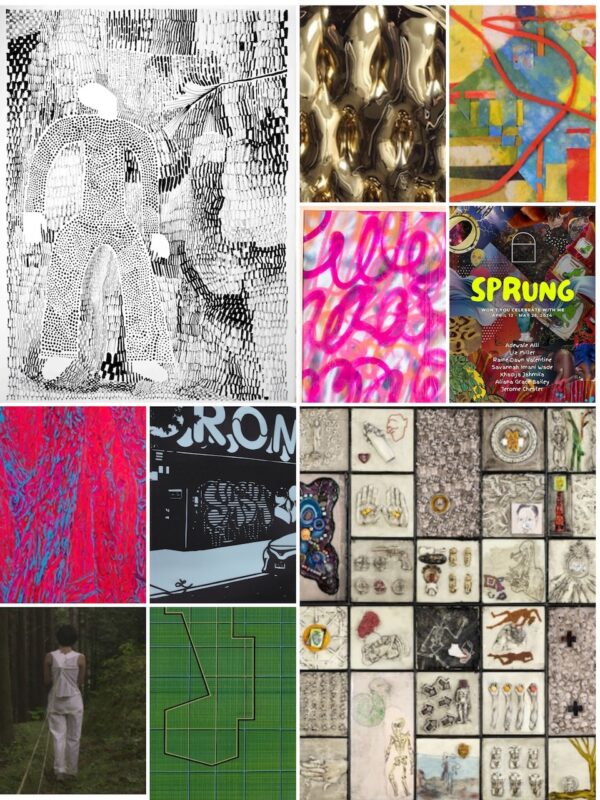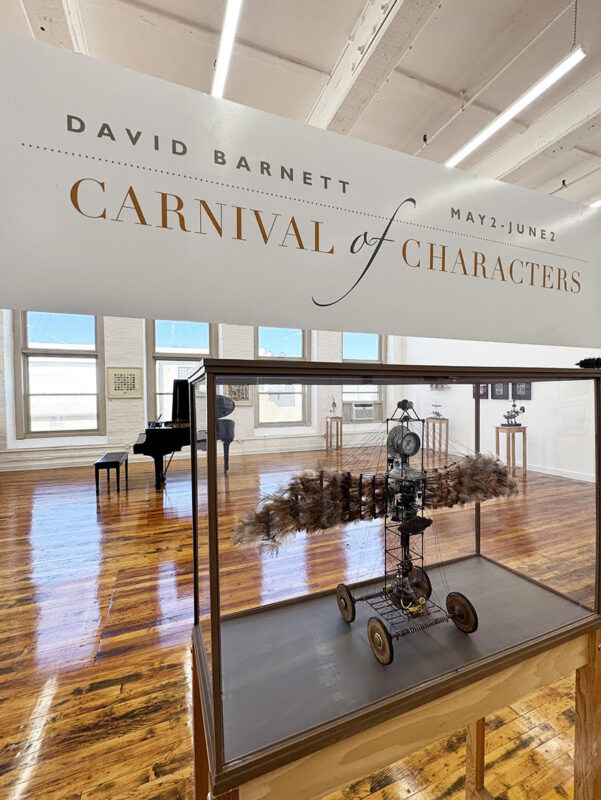A Conversation with Person Ablach by Kimi Hanauer
Living in the Waverly Neighborhood of Baltimore, Person Ablach is a queer Coptic immigrant, designer and writer born in Cairo, Egypt. Person likes cooking for friends, making clothes and independent scholarship. They also enjoy email correspondence and long form journalism. They’re available at [email protected].
Go to www.ifiruledtheworld.info
Kimi Hanauer: What are a couple things you say 100% Yes to?
Person Ablach:
1. That every prisoner is a political prisoner and all prisons are the result of cycles of patriarchal violence and need to be abolished.
2. That every single part of the prison industrial complex, forced psychiatric institutions, homeless shelters and Child Protective Services bring additional harm into any given situation regardless of the original circumstances of that situation, in the way that they are structured currently, which specifically, is under the control of the police.
3. That every bit of wealth belongs in common to all the denizens of the world.
4. I think that everyone should get a citizen’s wage or basic income. Anyone who’s taking care of themselves should get paid and each citizen wage should be increased if people are working for others or working to take care of another person, like being a mother, for example. All forms of traditionally unpaid caretaking-labor should definitely receive compensation in a way that’s honorable.
I think that actually covers everything. All politics should be concerned with is identifying the root causes of harm, abolishing that harm and enacting reparations for the harm that was caused.
What is something that makes you feel free?
Things that make me feel free are when I’m embraced by others, when I have my hands on a tool that’s restricting my movement like a pencil or an instrument. Because the restriction produces finesse; a delicate precision is articulated…. When I don’t have to worry temporarily about getting fed or making rent as soon as I’m locked into a contract or construction job. I guess a sense of freedom can be easily attainable, but that depends on having the opportunity to attain it. So impossible.
When I think about someone else’s freedom or its opposite, their helplessness, I can’t help but consider the freedom to not be oppressed, harmed or even punished..

How would you break down your definition of freedom? Can you speculate on what it looks like?
That’s a hard question because I don’t want or even value freedom. Freedom is an absurd idea. Freedom should be alien, it should be threatening. It’s an obscenity, actually. Who is free and what are they doing?
I believe in censorship for example, which I know is a touchy subject, but it’s because I think censorship protects people from others who use their freedom to abuse people.
In a way I don’t know enough about being actually free to answer. But when I think about someone else’s freedom or its opposite, their helplessness, I can’t help but consider the freedom to not be oppressed, harmed or even punished..
I would also say we could all be a lot freer than we allow ourselves to be too. And we would also probably be freer if we had fewer options…
What do you mean?
For me personally, I’d rather have a very structured existence than chase around a naïve notion of freedom of choice in whatever form. I don’t want to merely survive under capitalism but I’d rather work with members of my community and have that be permanently available as an optional way that I could support myself. Even if it wasn’t a choice, I’d rather be forced work alongside members of my community if the only alternative is competing against them under capitalism—Even If it’s not freedom… Even if it is a Gulag, I’d rather be sent to the Gulag.
Fuck freedom so long as a few are free to exploit others under capitalism rendering most people not-fucking-free. Fuck the freedom to enjoy the spoils of capitalist exploitation: theft. What are we talking about? Coal mining? The cheap houses getting flipped in Baltimore. Fuck the freedom to not engage in what should be mandatory war with the people who are destroying the earth. Yeah, I don’t need that shit.
So, we’ve been talking about these things for a few months now, but I wanted to ask you if you could walk me through what your very initial thoughts were when I approached you about If I Ruled The World.
Well, my first thought was, if I ruled the world, obviously no one would have any power over anyone else, which is to say, maybe no one would rule the world, but then there has to be some way of enforcing that…
I don’t know why anybody tolerates any authority at all though. We only have so many needs.
Different people describe those needs in different ways. Every time there’s an authority figure in the world, in any relationship, there’s somebody who’s standing or threatens to stand in the way of those needs being met. We only have so many strings to pull, so every flavor of control looks like these predictable ingredients.
I’d like to see a movement that tolerated none of these for any type of person.
Sadly, I’m not located in a community that can unanimously identify the local authority figures and deal with them, the cops, judges, state legislators, the racist governor, CEO’s etc. With that said, I wish I lived under an anti-authoritarianism, or what I think of as a pettier tyranny. We don’t live in utopia. Since we live under a totalitarian government that lapses into democracy one day every 4 years, wouldn’t you prefer a soft totalitarianism?
I think socialism would be a much prettier tyrant than monopoly-feudal-capitalist-deception-olympics,-or cryptofascism or whatever our current national politics is called. Socialism is literally the only part of government that furnishes our society with infrastructure, especially if there was meaningful democratic control. Please relieve me of the my burden of the free market commercialization of my own starvation, death by exposure etc.. If I ruled the world would I still experience the freedom to have all of my money, time left on earth, loved one or my own life stolen by cops?
I think, from what I can tell, every major socialist democracy still struggles with being controlled by the capitalists within and the people who hold the wealth and hire all the cops. Maybe abolishing or evolving beyond capitalism is enough but I think it needs to be both. A positive or creative politic of socialism and a negative or destructive politic or anti-authoritarianism. Overcoming oppression always meant the same thing as taking care of each other.

Do you think there’s meaningful ways of operating outside of capitalist structures while existing within them?
No. I think you are either ready to see capitalism go, and to suddenly take on, what would be an incredibly high-stakes project (which is keeping everything going in spite of the end of capitalism) or you’re a conservative. There’s no liberal, much less a neo-liberal to be seen under capitalism. They’re all vicious imperialists. There’s no social justice warriors under capitalism without a demand to see all the prisons empty; and any capitalist knows that’s the end of capitalism. There’s no meaningful social work under capitalism until the end of the theft from most of the global population of the world, that funds the possibility of that social work for a local community. Like I said, you are either ready to see it go, or you’re a conservative. You’re a conservative or you’re braced for the crisis of all of history to come crashing down suddenly.
That said, it’s just as important to fight to keep the lights off at night in the penitentiary so inmates can sleep proper hours as it is to close the prison all together. It’s fair to say working to improve humanitarian conditions is working “in the system.” I would argue that stopping any part of the total dehumanization and destruction of human life is stopping the system in degrees. I think a lot of people’s careers are built entirely on how well they can hide how hard they work to keep the system going.
I think that’s the scariest part of capitalism, is that on the inside, if you behave like a good, white corpuscle and defend the system that nourishes you, suddenly, your life matters. On the outside however, everyone is a pathogen.
I think we should think about after-capitalism instead of inside or outside. Like, we all definitely know there’s nothing out there except police and drone-strike assassinations. I personally want to stay focused on how the cooperative structures could look in any given post-capitalist future. I think being caught up on getting the work right is actually good, but it’s just as important to see how the system currently limits our imaginings of possibilities.
What is special to you about Baltimore?
So, I moved to the United States from Cairo when I was four years old and I grew up mostly in Tampa. Without going too much into detail, a lot of my experience was so mediated by the violent, racist, white people I lived around. In my travels to different states, I immediately loved Baltimore. Mostly because there were fewer white men and even fewer large groups of them. There were other reasons I loved Baltimore too. I love my small overlapping communities. I love the sense of history and what I can see at any given day.
It has a rich preindustrial, and fucked, colonial history. A few blocks away, on Saint Mary’s for example, you can tell the enslaved peoples quarters by the rarer 10 foot width of the row homes. Somehow, since coming to Baltimore, I can understand myself as pitted in a moment, in a city, in a time with such clear and gripping historical footprint that I often feel lost in other cities.
I also should say that it’s my privilege to come to a city struggling with so much institutionalized violence and feel that I’m “safer.” It’s a privilege to be an immigrant in a sanctuary city within a nation that’s hostile to immigrants. I’m thankful for Baltimore. I believe that if Baltimore can overcome the structural violence that’s facing it, anywhere in the United States could also overcome it.
Since coming to Baltimore, I can understand myself as pitted in a moment, in a city, in a time with such clear and gripping historical footprint that I often feel lost in other cities.
What would be your most positive vision of Baltimore?
There are a lot of things on my mind.
I would love to see a program that would put anyone who wants a job to work at any capacity renovating the vacant houses. I think it would be great if folks worked as close to their home neighborhood as possible. It’s more feasible than the developers say, on account of they are lying about repair costs to justify tearing them all down indiscriminately. They say building entirely new structures is cheaper so they can get paid for more work—that’s all.
I would like to see a dollar housing program on all 32,000 of those freshly eminent-domain-ed and community renovated vacants. Basically it should be specifically for reparations for chattel slavery, Jim Crow, and redlining. The process definitely needs to be about as easy as a phone call. I think it would be nice if at least 10,000 of those homes were families of 3 or more.
I think it would be a good idea for the city as an entity to seize the money and properties from banks and developers that was stolen from people or acquired through any questionable or corrupt circumstances. Baltimore’s homes need to be given back and the water and energy utilities should be publicly owned. I think of the many elder black women that are losing their homes over taxes and water. It’s only one example of home theft and displacement which needs to be fully elucidated. They are already paid for, but because of late water bills as small as $250, these folks are evicted, only to see their houses flipped at a courthouse on the east side to real-estate investors. All these abusive practices should be documented and every home and cent returned.
Also, I think there should be a publicly accessible accountability database for the full bureau of government agencies and corporate entities everywhere. In it, there should be a discrete list of accounts given by individuals who can point out an entity that benefited from stealing from people, corruption, abuse of power, etc.
I think about much less realistic things too. Like how Baltimore should reduce its roadways by half and in its new “real-estate,” we should grow 100% of our food locally. Just a fantasy.
Also, on a more personal note, I would like a job that isn’t freelancing or working construction. I’d love to spend all day canning locally made food. Or manufacturing glass and recycled metal lids for those cans, but there needs to be some other jobs. Specifically, I think Baltimore should have job opportunities as part of large-scale projects including environmental remediation, reforestation, soil production/methane and co2 sequestration and anti-climate change/reverse-terraforming (that needs to be a job).
Do you think that artistic thinking can play a socially transformative role or is important to creating change?
I’m not saying that an art project can’t have the visionary capacity to deconstruct or rebuilt a subject, a concept, an industry, a market or a society. But it seems that most arts funding is for making real-estate development visible, which is, I think, a huge tragedy.
Fuck the labeling of arts districts, the annual festival thrown so the people don’t riot, the whiteness of DIY spaces and implied supremacy of the highly visible consumerist producers; “Makers?” fuck’em. They’re all tragic.
If you’re an artist in this city with any institutional relationship, whether that’s the Maryland Institute College of Art, Johns Hopkins University, Baltimore Office of Promotion and the Arts or Station North Arts and Entertainment District, who among others are collaborators with PNC, Wells Fargo and the rest; or if you work with artists that do—you’re a tool being used by PR firms and you’ll keep being just as counter-revolutionary until you challenge and break ties to those institutions.
If you have the chance, take the money, grants, whatever but don’t get it twisted. It’s all blood money.
Moments of artistic, but more appropriately, creative-intervention, are what capitalism works against…
Conceptually, you’re saying, an artwork can be influential in some way, but that often artworks just work in cooperation with existing problematic structures in order to exist in an accessible scale?
Some art projects aim for different things beyond their metaphor. An art project, in how novel a form it can be, or in how interdisciplinary the form is—through overlapping relationships with the physical, the psychosocial spaces between us, our relationships with ourselves, or with science or engineering can change the world, yes. This kind of intervention in the world looks like a disruption of the ways we’re taken advantage of or alienated from one another. That, or it’s being made for and by those who don’t have to worry about it. Those moments of artistic, but more appropriately, creative-intervention, are what capitalism works against and it’s what arts funding intentionally avoids granting. We get “Light City,” not “Real-Livable-City.”
If artists actually start inventing how we could live in a free-post-capitalist context, then soon enough, artists will be called terrorists.
Overall, this project deals a lot with utopian thinking… Do you think there are ways in which utopian thinking can be productive?
I think that you can’t really have a utopian view of a system. And you don’t want it, get rid of it! What you want is to have a utopian view of people, a community and society. And that is the only utopian dream. And that doesn’t mean by you and for others. It means by people collaboratively. If you can’t find it between you and another person, you’re going to be at war over whatever form “utopia” takes until it’s over. When I think about utopianism, or idealism, which is really maybe at the root, I think of Viktor Frankl, specifically talking about Goethe. The notion is that if you take someone for who they are, you make them worse but, if you take them for what they can become, you incite in them possibility and you make them better. How we arrive at “utopia” without structuring that relationship and somehow also avoiding the creation of fascism seems a bit challenging. It’s worthy of the real work. And I don’t mean through some type of morally superior “social work,” but through the tragically diminished labor of real relationship building and then building on that, through sustained partnership, collaboration and interdependent survival.
The folks who are developing Baltimore are doing it with a utopian aesthetic. A whole generation of elite-maker-artist-business-creative-professionals… keep that shit out of here! I want no part in any utopia that doesn’t start between all people. For the good that it would do, to have people empowered and trusted to do good by one another.
If you can’t find it between you and another person you’re going to be at war over whatever form ‘utopia’ takes until it’s over.
That’s another reason I like the citizen wage; it gives everybody some degree of capacity to turn inwards to take care of themselves and to have the time to spend with one another. That basic social support should be everything. It should provide benefits that could be felt throughout the rest of whatever else is left.
What motivates you?
I think the main thing that motivates me is cooperation. And what a miracle it is when any number of people can come together, forgive and set aside the harm they’ve caused one another; and with all of their needs met, they fulfill some type of common objective, from the dirty dishes to addressing the ancient and future architecture.
What if you (no one) ruled the world?
It’s funny that I should be so shy to answer the question of if I ruled the world, because I know that if I had power, I would use it very aggressively. It would be a mess. Keep it away from me. Seriously. Everyone would be in roving bands harvesting and planting vegetables; and tending to a nationwide interconnected garden, bird and insect sanctuary along the highway. Mobility and accessibility tools would be provided. Participation would be mandatory. No exceptions.
I would say if we all ruled the world, I would like for there to be a system in place, specifically designed for empowering people committed to cooperating and working with one another, with the resources to be able to do so; cooperation and committing to sustaining the corporation or collaboration. Our society doesn’t have enough structure that looks or sounds anything like that. Which is to say that maybe it could look different in a hundred years, after we dedicate our energy to building those structures, whether participation is mandatory or not. Cooperation is a fact of life and, in that way, your participation with others in this world crafting it is mandatory.
About If I Ruled The World: Presented by Press Press with support from BmoreArt, If I Ruled The World is a publication that takes inspiration from the Nas classic, “If I Ruled The World” (It Was Written, 1996), in order to facilitate artistic collaborations and conversations between a range of Baltimore-based Creatives and activists. In their responses, contributors present their most positive visions of the world, and by doing so are able to thoughtfully analyze and investigate the nuances within the struggle for equity in our city and the active role of artist within the pursuit for social change. If I Ruled The World is curated by Kimi Hanauer with direction by contributors and the Press Press team.
